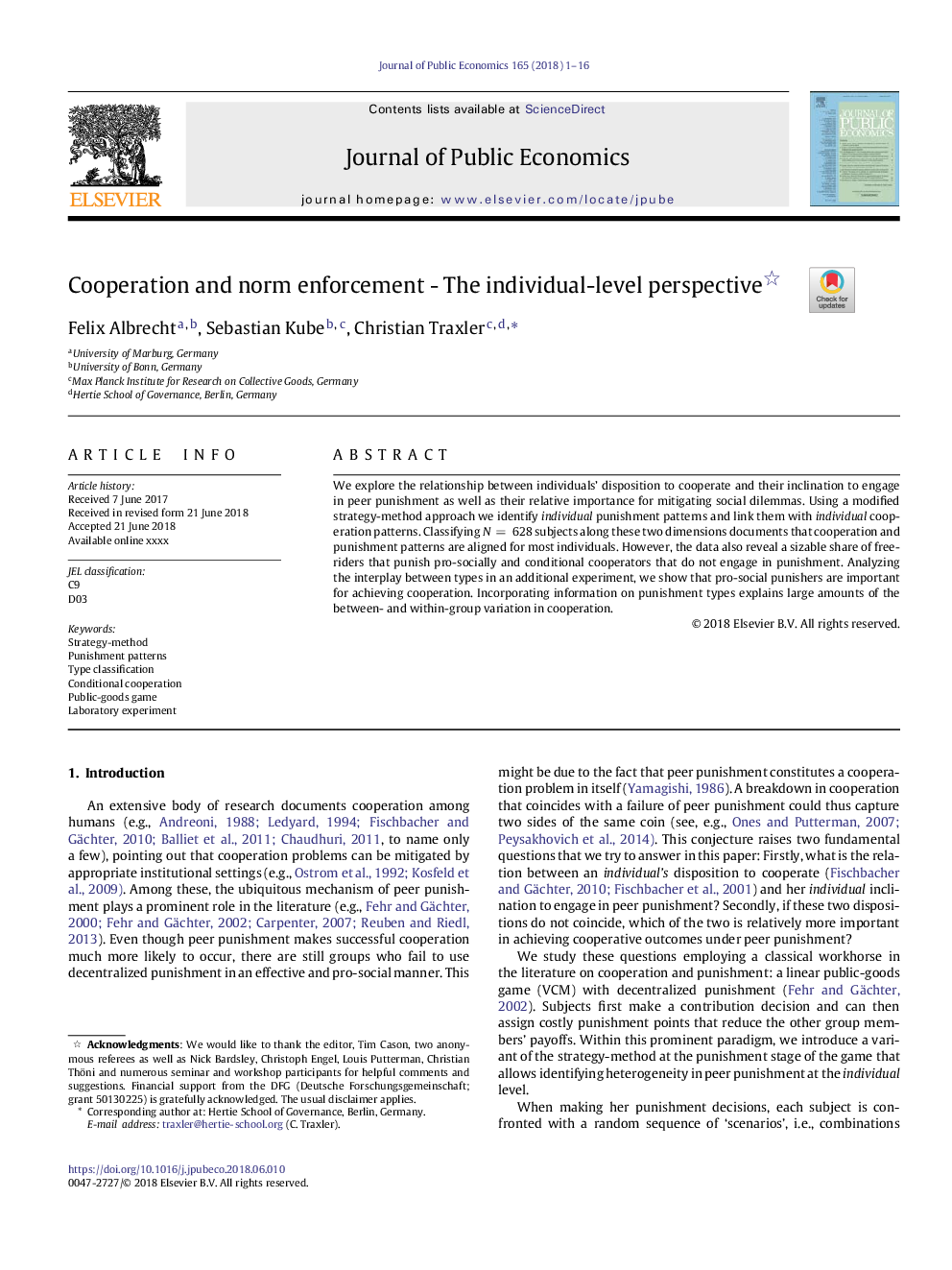| Article ID | Journal | Published Year | Pages | File Type |
|---|---|---|---|---|
| 7369249 | Journal of Public Economics | 2018 | 16 Pages |
Abstract
We explore the relationship between individuals' disposition to cooperate and their inclination to engage in peer punishment as well as their relative importance for mitigating social dilemmas. Using a modified strategy-method approach we identify individual punishment patterns and link them with individual cooperation patterns. Classifying Nâ¯=â¯628 subjects along these two dimensions documents that cooperation and punishment patterns are aligned for most individuals. However, the data also reveal a sizable share of free-riders that punish pro-socially and conditional cooperators that do not engage in punishment. Analyzing the interplay between types in an additional experiment, we show that pro-social punishers are important for achieving cooperation. Incorporating information on punishment types explains large amounts of the between- and within-group variation in cooperation.
Related Topics
Social Sciences and Humanities
Economics, Econometrics and Finance
Economics and Econometrics
Authors
Felix Albrecht, Sebastian Kube, Christian Traxler,
